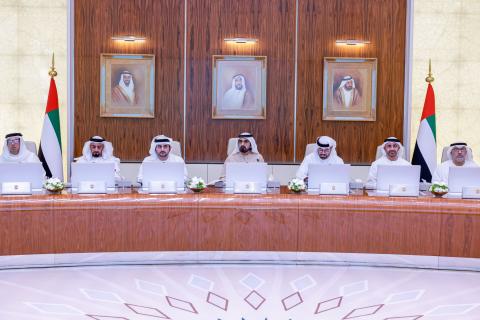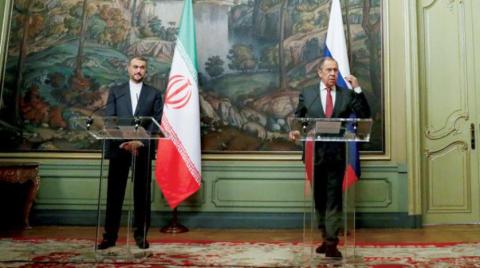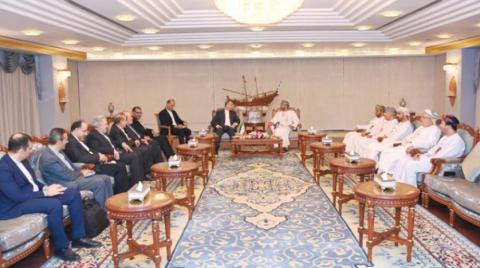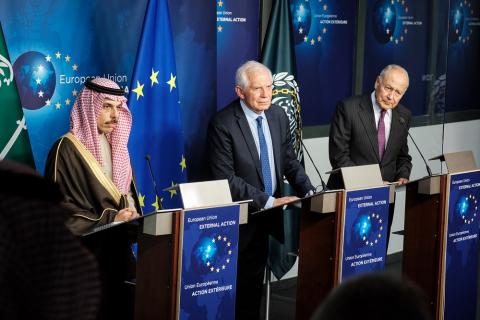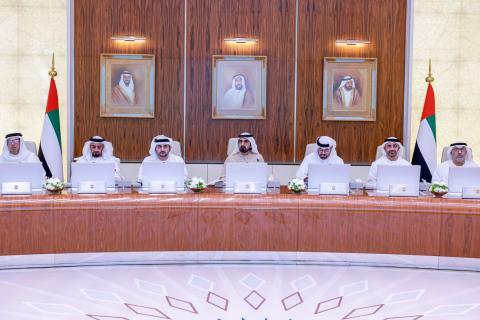
Iranian Foreign Minister Hossein Amir-Abdollahian will visit Moscow on Wednesday to hold talks with his Russian counterpart, Sergey Lavrov, on several issues, including faltering efforts to revive the nuclear agreement.
Iranian media quoted the Iranian ambassador to Moscow, Kazem Jalali, as saying that Abdollahian will follow up on the implementation of bilateral agreements, and will review regional developments, and the latest situation in the International North-South Transport Corridor.
The Iranian foreign minister had announced his visit to Moscow, saying in a Tweet on Monday: “Balanced foreign policy and active diplomacy are on the right track.”
Last week, Russian Foreign Ministry spokeswoman Maria Zakharova told reporters at her weekly press briefing that Lavrov will hold consultations with his Iranian counterpart on Wednesday on current international issues, including the Joint Comprehensive Plan of Action (JCPOA).
The two ministers are also expected to discuss the regional situation in light of the agreement between Riyadh and Tehran to resume diplomatic relations, according to the Russian Foreign Ministry spokeswoman.
Abdollahian is currently facing increasing pressure, whether from critics of the current government’s approach to the nuclear negotiations or those questioning his ability to lead the Iranian diplomatic apparatus. In fact, the Secretary-General of the Iranian National Security Council, Ali Shamkhani, stole the limelight in the wake of the Iranian-Saudi agreement, and his visit to both Abu Dhabi and Baghdad, which preceded the meetings held by the head of the Strategic Relations Committee, Kamal Kharazi, in Damascus and Beirut.
Abdollahian, Shamkhani, and Kharazi have all tried to deny the presence of any divisions among the Iranian bodies, stressing coordination on foreign policy.
On the eve of his visit to Moscow, the Iranian foreign minister sent several messages in press statements that were reported by the official media on Tuesday. He warned that the doors of nuclear negotiations “will not remain open,” speaking of a plan that the Iranian parliament intends to discuss to set a ceiling for nuclear talks.
Nonetheless, Abdollahian said that Tehran was “committed” to cooperating with the International Atomic Energy Agency (IAEA), in reference to the recent agreement reached by the director of the UN agency, Rafael Grossi, regarding the investigation of uranium particles recently found at the Fordo facility, with a purity of 83.7 percent, or the thorny investigation of traces of uranium in three undeclared sites.
Meanwhile, the Russian envoy to international organizations in Vienna, Mikhail Ulyanov, said on Monday that the negotiations to revive the nuclear agreement remained at a dead end, adding that the Western parties were “refraining from announcing their death.”
In remarks to the Russian Novosti agency, Ulyanov noted that the chances of completing the negotiation process “still exist today, although they seem to be very limited.”
“The United States opposes the resumption of the negotiation process in the first place, as well as the three European countries (Germany, France and Britain), which seem to have almost lost interest in restoring the nuclear deal,” he added.




